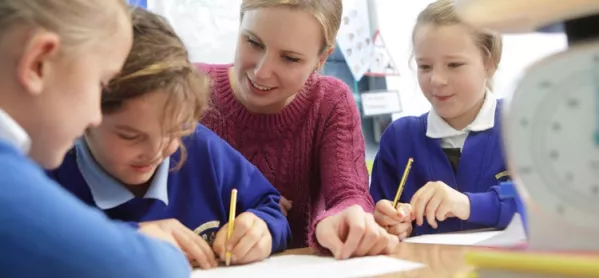There’s no doubt that learning vocabulary is important. The more words we have, the more we understand the words we have, the greater our power to express our wants, needs, wishes, thoughts, desires and opinions. Words have power and a child’s ability to exercise control over them at the age of 5 is the most stable predictor of how well they will do academically aged 11 and when they take their GCSEs.
There has also been much discussion recently suggesting that the number of words children know is declining. According to the recent study published by Oxford University Press, teachers think that up to 40 per cent of their pupils know fewer words and this affects their ability to learn in the classroom. We need to recognise that many of the words we assume children should know might not be available for them to learn incidentally in their everyday lives. If particular words are important for children to be able to access the curriculum, we need to ensure they learn them and this means understanding effective ways to introduce vocabulary. We can’t teach children every single word, but we need to teach them to become good at catching words for themselves.
Jean Gross, in her book Time to Talk, compares learning vocabulary to kicking a football into a net. A child who is good at catching new words has a net with small holes. As the words are kicked into the net, they are caught up and linked to all the other words and knowledge they possess. In contrast, a child who has fewer words and finds it harder to acquire new vocabulary has a net with large holes it. The new words simply fly through the holes, failing to be caught.
‘Catching’ new vocabulary
So how can we help children “catch” new vocabulary?
Recent studies have begun to suggest that it’s the “serve and return” of a conversation that is important when helping children to learn and use new vocabulary. Just hearing the words, or being exposed to them in a text when they read silently, isn’t enough.
A word has a sound, a written form and a meaning. It also has a context and grammatical rules that bind how it is used. Words have opposites and neighbours; they can have histories that have changed their use and meaning over time. Words are never static; they are culturally and socially connected to the place, the time, the context, and the message they are used to convey.
When we are teaching vocabulary, we must resist the temptation to consider teaching words in isolation, producing lists of words for children to acquire. It helps to grab the chance to explore new vocabulary and spend a little time considering the nuanced meaning of the word, how it is spelled and its relation to other words. Supporting children to understand the links between words - in how they sound, what they mean, how they are constructed and their history over time - ensures that we strengthen the strands of the net, helping them to become aware of words for themselves.
Finally, we need to plan opportunities for children to use their new language for themselves so that they can share their understanding.
Every teacher is a teacher of words. We need to ensure that we help children to find the right words, at the time, to convey their ideas, in the most appropriate way. Vocabulary should be more than just a list.
Megan Dixon is director of literacy at the Aspire Educational Trust




